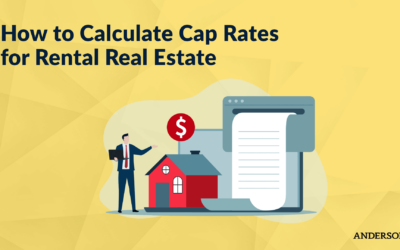Where Do You Need Anonymity as an Investor?
In this episode of Coffee with Carl, attorney Carl Zoellner explains how to use anonymity as an investor and why it’s important to know where and when you can use it.
Hello everyone!
One question that comes up is: “What if a bank or governmental agency asks about my ownership of a business entity?”
Firstly, am I looking to be anonymous from those parties? And number two, is it possible? So in the first scenario, are you looking to be anonymous from your bank or potential lender? It may be nice if you could be anonymous, but in most cases, you’re not going to be able to make that happen.
Ultimately, a bank or a lender needs to see and verify who they’re lending to. From the banking side, some pieces have hungover from the Patriot Act that impacts anonymity. They need to have some information to make sure they’re not holding money for terrorism and things like that.
Anonymity isn’t our primary focus here. The asset protection will be focused more on the entity and the asset protection provided by the entities there. From a governmental standpoint, there are states where you see the variation on what they’ll accept from an anonymity perspective.
We tend to work around many of the issues that you come into from state to state to provide you anonymity. One such tool we use is that Wyoming Holding Company, which will own an entity, and that’s in the state that may be giving you trouble with anonymity. The other way we can accomplish anonymity is by changing the type of entity that can help.
Potentially, the taxation or even using things like land trusts and personal property trusts can extend that anonymity where there may not otherwise be any available. From a 10,000 foot view, these will be very individualized solutions depending on the state you’re investing in and the type of investment you’re doing.
When we start looking at running active businesses or running a business–where you’re the one out there shaking hands, making deals, representing your company–anonymity isn’t at the forefront of our minds. Anonymity is something we use for our passive investments.
While there is a measure of anonymity when you’re representing yourself in an officer position or a manager of an LLC, scenarios we’re trying to utilize and maximize that anonymity is for those long-term holds or, as some of us affectionately refer to it as, “mailbox money.”
With the active businesses, there’s a realistic aspect of handing out business cards or making deals on behalf of my business. The outside world is going to know there’s some connection between me and this business. It’s not a bad thing. When talking about anonymity, we’ve got to realize that it is only one of the layers that we use for asset protection.
Realistically, the entities are what create the strength within our entity structure to provide us the protection. I maintain, where anonymity is possible, keep it, have it, utilize it to the best of your ability. In places where it’s not so possible, or you’re running into some issues upholding anonymity, just realize different business activities may have some impact on the level of anonymity you can obtain.
The Takeaway
In the end, I really don’t have a huge concern about giving my information to a bank, lending institution, or the government. I’m trying to avoid giving that information out freely to the general public, or potential plaintiff, or plaintiff’s attorneys. That is our target we are trying to avoid.
For more information on how to do that, I would encourage you to call in, get your free consultation. If you are already a client, use the Platinum service you have with us. You’re more than welcome to do that. We are always happy to have a conversation with you.
Please keep taking advantage of all of our free content that’s out there.
Until next time, thank you for joining me for this episode of “Coffee with Carl.”
Resources mentioned in this video:
- Join our next Tax & Asset Protection event to learn more advanced tax minimization & entity structuring strategies
- Subscribe to our YouTube channel to make sure you never miss the latest strategies & updates
Got an idea for a future Coffee with Carl? Send it to Carl at cwc@andersonadvisors.com.
Free Strategy Session with an Anderson Advisor
Receive a detailed risk assessment to assist in lowering problem areas that could wipe out all of your assets with one wrong move. Speak with an Anderson Professional Advisor to get your FREE Strategy Session.
Limited-Time Offer: ($750 value.)











